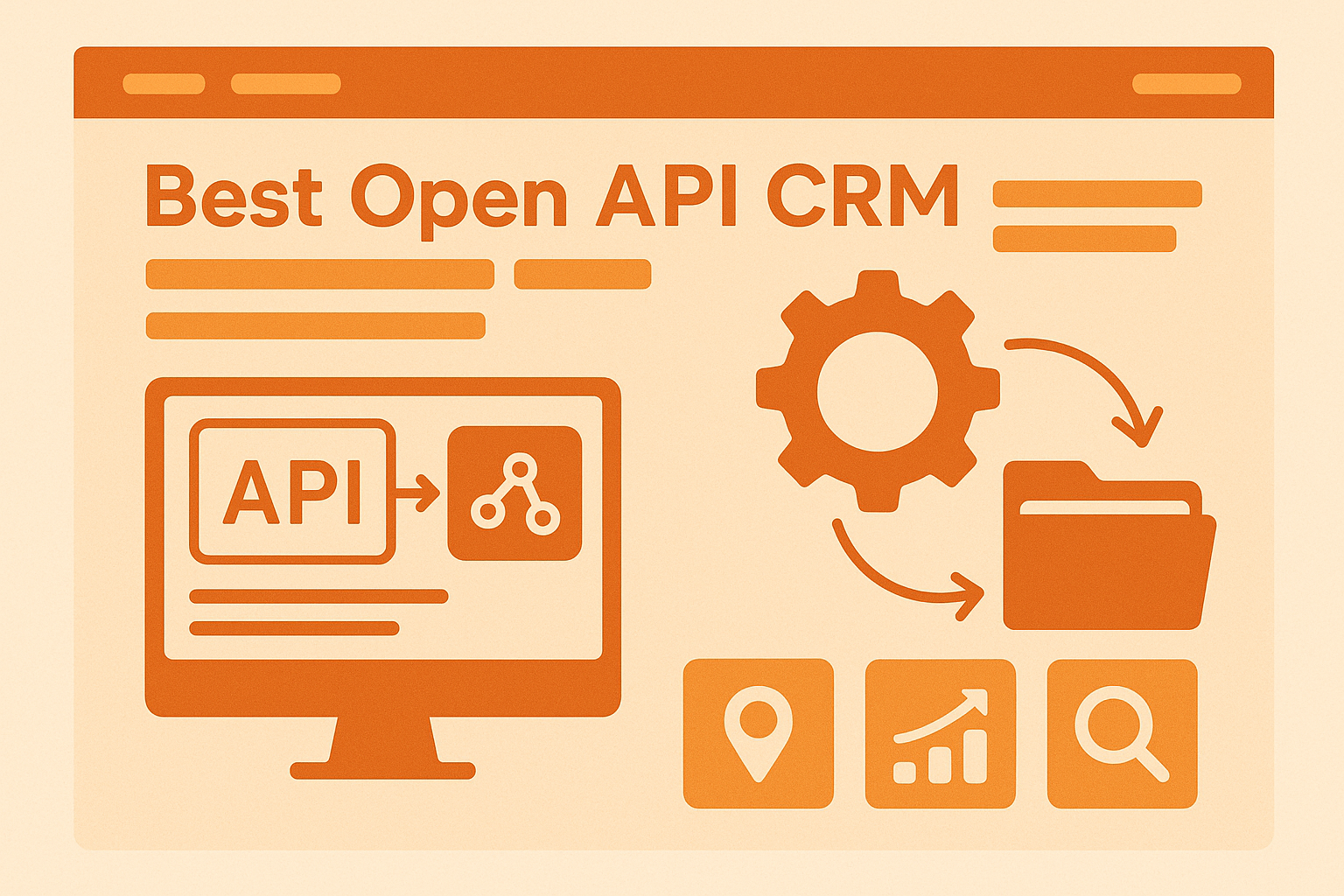Download Now: Free "CRMs Powerhouse 2023-2024" eBook
CRM market is expanding extremely fast. According to Forbes, “By 2023, 62% of CRM will be cloud-based, and the cloud computing market will reach $127.5B”. Investing in these tools today is more important than ever, as they boost sales efficiency and increase overall revenue for the company. A comparison of CRM platforms can help you to choose the best one.
Your Robust Sales CRM
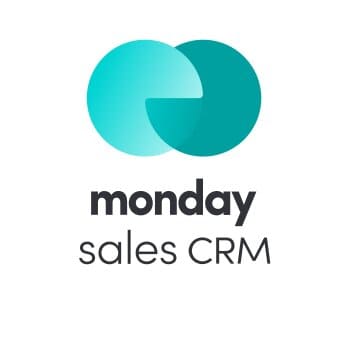
4.1
Times have changed, and now businesses of all sizes can afford a CRM platform, regardless of whether they are large enterprises or small startups. The pricing options for CRM software range from free to more expensive plans, allowing businesses to choose the one that best suits their needs and budget. This means that even small businesses can take advantage of a CRM system's features and benefits.
[Related Article: 10 Best Free CRM Software]
That is why we prepared the brief CRM cost comparison regarding top market platforms, so you can analyze the pricing plans and choose the one that suits your requirements.
Comparison Table of Popular CRM Software
|
CRMs |
Minimum price |
Maximum price |
Free plan |
Free trial |
|
$25 |
$300 |
❌ |
30 days |
|
|
$50 |
$3,600 |
✅ |
30 days |
|
|
$25 |
$85 |
❌ |
14 days |
|
|
$29 |
$99 |
✅ |
14 days |
|
|
€14 |
€52 |
✅ |
15 days |
|
|
€12.50 |
€59.90 |
❌ |
14 days |
|
|
€10 |
€24 |
✅ |
14 days |
|
|
$15 |
$69 |
✅ |
21 days |
|
|
$55 |
$115 |
❌ |
14 days |
|
|
£14 |
£60 |
✅ |
14 days |
Comparison of Top 21 CRM Platforms
Best Overall
Salesforce
If you want to sell smarter and close more deals, Salesforce is the #1 CRM to consider.
Go to siteBest Workflows
Best Sales
Pipedrive
A sales-focused CRM that uses AI to automate repetitive tasks and manage leads and sales.
Go to siteBest for Marketing
Best for SMBs
Best for Service
Creatio
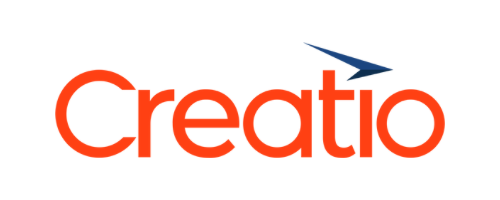
Creatio is a prominent provider of a unified platform that automates industry workflows and customer relationship management (CRM) with a no-code approach and utmost flexibility. Its offerings encompass a no-code platform called Studio Creatio, as well as CRM applications such as Marketing Creatio, Sales Creatio, and Service Creatio. Additionally, Creatio provides industry-specific workflows for 20 verticals and marketplace add-ons.
Marketing Creatio enables the automation of marketing campaigns and lead management workflows, Sales Creatio automates all types of sales processes from end to end, while Service Creatio is a powerful omnichannel platform that streamlines complex customer service workflows. Lastly, Studio Creatio provides a no-code platform for workflow automation and application building with maximum freedom.
Pros
- Creatio provides a unified platform that includes many company sectors such as marketing, sales, customer service, and workflow automation.
- Creatio's no-code methodology allows users to design and change workflows and applications without the need for coding. It saves time and money while allowing for maximum flexibility and customization.
- Creatio offers industry workflows for 20 different industries, including banking, healthcare, and manufacturing. Because these processes are pre-built and ready-to-use, organizations can quickly adopt their automation solution and gain operational efficiency.
- Creatio's omnichannel features allow organizations to provide seamless customer support across all channels, including social media, email, and chat. This feature improves client satisfaction and experience.
Cons
- Creatio might be an expensive solution, particularly for small firms. The price strategy is subscription-based, with charges varying according on the number of users and the degree of functionality required.
- Users may need to invest time and resources in learning how to use the platform and its features.
Salesforce
-Mar-27-2024-01-13-39-9884-PM.png?width=500&height=200&name=salesforce%20(1)-Mar-27-2024-01-13-39-9884-PM.png)
We should’ve included this software in our list, as it is the first and most popular CRM solution on today’s market and in our CRM cost comparison list. It provides a wide list of features and exclusive add-ons (more than 600).
[Related Article: Act! vs Salesforce]
Salesforce pricing plans vary a lot, so they can satisfy the needs of any business type, yet suit more large companies with complex sales processes.
Salesforce includes a 30-day free trial and offers 4 cost plans:
- Lightning Essentials. It is the most accessible plan that costs 25$ per month/user/billed annually, providing basic opportunities, such as account, contact, opportunity and task management; customizable sales process, activity feed, the creation of a calendar, full offline mobile functionality and inbox mobile app.
- Lightning Professional. Plan, which costs 75$ per month/user/billed annually. It gives you options, included in the cheaper plan, adding some other functions: connecting sales information to any app you want, personal accounts, products and price books, quotes, topics and recommendations, Google apps integration, and others.
- Lightning Enterprise. plan for 150$ per month/user/billed annually. It includes features of two plans, described above plus Einstein lead scoring (for additional cost), a sales console app, Einstein automated contacts, sales teams, opportunity splits, enterprise territory management and more.
- Lightning Unlimited. provides you with unlimited CRM power and support, costs 300$ per month/user/billed annually. It supplies you with all features mentioned before, coming with full sandbox and some other options provided for an additional cost.
Setup fee is zero when you work with Salesforce. Also, a single user pays these basic monthly rates, but if you want to add a new customer, you should pay more.
Pros
- Cloud solution
- User interface
- Flexible settings
- Data access
- Integration with social networks
- Integration with third party applications
- Support
Cons
- Price
- Service Level Agreement (SLA)
- Analytics limitation
- Availability of the system for small businesses
- Data processing center
HubSpot CRM
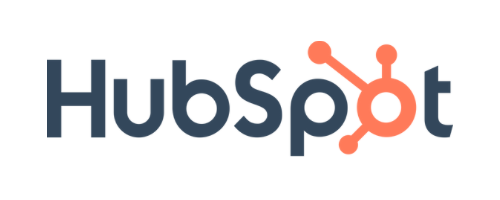
The software is somewhat new on a CRM market (was introduced in 2014). HubSpot is considered to compete with such experienced vendors as Salesforce and SugarCRM because of its user-friendly interface and accessibility. The platform offers more than 100 different integrations, including popular ones as Zapier, Nimble, Netsuite, and others.
However, the main thing that convinces business owners to move their sales data to HubSpot CRM is the price of the system. More specifically, the lack of it. The platform is free forever for an unlimited number of users. You can store up to 1 million contacts and companies. The core functionality that is included in the CRM are:
- Contact management
- Contact & company insights
- Gmail & Outlook integration
- Deals
- Companies
- Tasks
- Lead analytics dashboard
- Lead flows
- Email scheduling
Although, if you are looking for an extended list of features or more robust analyzing and reporting abilities, you should pay for the extensions to the free version. That is why HubSpot CRM suits more small and mid-sized businesses with simplified sales processes and a shorter list of requirements to the software.
Pros
- Completely free version available
- Universal platform for any business
- Predictive lead scoring option
- Comprehensive contact management
- Deal flow management
- Meeting scheduling and an omnichannel approach
Cons
- Expensive for higher levels
- Some aspects are difficult at first glance
- Some users need more functionality
Insightly
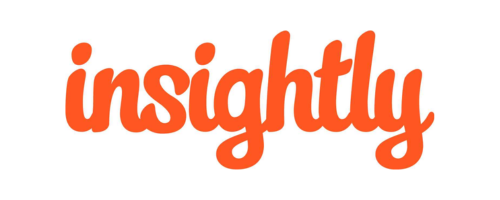
The platform fits companies of any sizes, focusing on small and middle-sized businesses. The solution has customers from all kinds of industries because of its flexibility and user-friendly interface.
The platform provides a free edition for up to 2 users (includes basic CRM features, such as lead & sales management, custom reports and charts, task and project management, email templates, and others).
Also, Insightly offers three paid plans to the CRM cost comparison:
- Plus for $29/user/billed annually (includes everything in a free edition plus integrations with other systems, custom branding, scheduled reports, calendar & contact sync, and others).
- Professional for $49/user/billed annually (adding more security (SSO), workflow automation).
- Enterprise for $99/user/billed annually (unlimited number of records, priority support, and SAML-based SSO).
Pros:
- "Forever free" plan for a maximum of two users.
- A wide range of features for all business sizes.
- Friendly support team.
Cons:
- Best marketing features are only available to high tiers.
- Integrations between some apps frequently fail.
- It is unclear what each plan includes.
Keap CRM (formerly Infusionsoft)
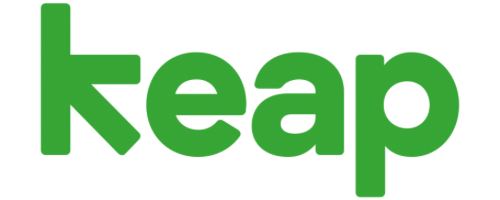
Keap is a cloud-based CRM system, introduced in 2004. The platform integrates with popular platforms: Zapier, Xero, MailChimp, and others (112 in total). The solution focuses on small and medium-sized companies, providing all the necessary features and even more to enrich the growth of your business.
Keap pricing editions are based on how many contacts you want to store. Onboarding for a new user costs $299. The pricing editions are:
- Up to 500 contacts – $80/month (for the first 3 month, after that – $99)
- Up to 1,500 contacts – $104/month (for the first 3 month, after that – $129)
- Up to 2,500 contacts – $144/month (for the first 3 month, after that – $179)
- Up to 5,000 contacts – $184/month (for the first 3 month, after that – $229)
- Up to 10,000 contacts – $240/month (for the first 3 month, after that – $299)
- Up to 25,000 contacts – $280month (for the first 3 month, after that – $349)
- Up to 50,000 contacts – $304/month (for the first 3 month, after that – $379)
- For more contacts you should contact Infusionsoft experts for estimating the price
These plans include:
- 1 user account
- Contact management
- Marketing automation
- Unlimited emails
Additional functions such as sales pipeline and e-commerce can be added for an extra cost to your monthly payment.
Pros
- Remarkable Marketing Characteristics
- Intuitive user interface and efficient lead generation
- Multiple integrations
- Personalization
Cons
- Expensive
- Some aspects may slow down and need to be improved.
Zoho CRM
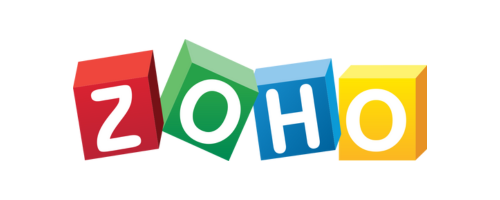
Zoho CRM is a cloud platform that gained a large audience with its practical feature sets and cost-effective pricing policy. The solution offers you to manage leads, accounts and contacts as separate modules, as well as enables the automation, analytics, and inventory management.
Zoho allows you to choose between 4 payment plans and a free edition for up to 10 users. Check them out in our CRM cost comparison:
- Standard (€14/month/user/billed annually). Includes the basic CRM features, such as a contact, feed, lead, account management plus reporting, forecasting, mass email, dashboards, and others.
- Professional (€23/month/user/billed annually). Offers some additional to previous plan capabilities: unlimited number of records, workflow management, email integration.
- Enterprise (€40/month/user/billed annually). Comprises the territory management, conditional fields, custom modules, multiple currencies, and others.
- Ultimate (€52/month/user/billed annually). Contains all mentioned above features, yet offers additional functionality: the priority support for its subscribers, dedicated database cluster, advanced customization, enhanced storage, and others.
These prices are offered in case you are using an annual subscription. If you choose a month-to-month payment option, the system requires a higher price.
Cons
- Price
- Integration with various applications
- History of work with clients
- Telephony and distribution
Pros
- Paid mobile access
- Mobile interface needs improvement
- Limited ability to manage complex structures and sales department
Pipedrive
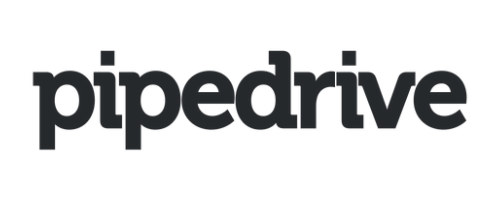
Pipedrive is a platform that provides small sales teams with the ability to manage deals, get in-depth sales reports and identify the priority enhancement areas.
The solution provides you with 5 paid plans and offers you the next functionality:
- Essential – €12.50/user/month/billed annually – includes most sales management features, such as 30 custom fields, 15 reports, unlimited pipelines, email inbox, and more.
- Advanced – €24.90/user/month/billed annually – everything in Essential plan plus meeting scheduling, email scheduling, 1 email sync (per user), 100 custom fields, 30 reports, 30 automations.
- Professional – €49.90/user/month/billed annually – provides full sales management opportunities plus lead routing, revenue forecasting,2 email syncs (per user), 300 custom fields, 50 reports, 60 automations, document management.
- Power – €59.90/user/month/billed annually – offers advanced features such as personalized onboarding, phone support, 3 email syncs (per user), 500 custom fields, 250 reports, 90 automations, project management, extra teams.
- Enterprise – €74.90/user/month/billed annually – experience Pipedrive without limits and have ultimate peace of mind.
Just like with many other solutions, you can save money if choose an annual subscription against month-to-month payments. You can also migrate between plans without any problems anytime.
Pros
- It does not take much time to set up, there is a video explanation
- Price
- Integration
- Sales statistics
- Support
Cons
Not all users are satisfied with the functions and design
Pipeline CRM
-1.png?width=500&height=200&name=Pipeline_logo%20(1)-1.png)
Pipeline CRM is a software that was launched in 2006. The system integrates with 37 different solutions, including MailChimp, G Suite, Zapier, and others. It is a great fit for the small and mid-sized organizations and provides a feature set to ensure easy learning curve and efficient usage.
The platform provides 3 paid monthly plans:
- Start for $25/user/billed annually (includes unlimited leads, deals, and companies; email tracking)
- Develop for $33/user/billed annually (comprises everything in the Start plan plus reporting on multiple revenue sources ability; highlighting of key contacts; tracking of major customer milestones)
- Grow for $49/user/billed annually (accommodates everything in Start and Develop plans along with smart automation; multi-currency support; two-way email sync).
Pros
- Unlimited number of contacts, deals and companies
- Simple import and export of text and tabular information
- The use of cloud technologies ensures the simplicity and high speed of setting up a software solution
- Compatible with mobile devices based on iOS and Android
Cons
- No free plan
MS Dynamics CRM
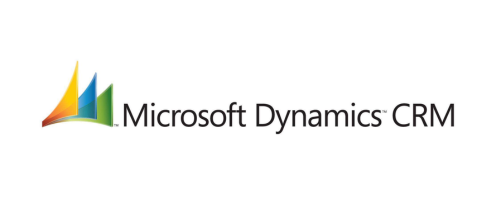
MS Dynamics is a great solution to satisfy the freelancers, small/mid-size business, and enterprises requests. It can be reached in the cloud, on-premises, or hosted by the partner’s servers. Also, the solution allows its users to change the deployment type.
The main plans regarding CRM cost comparison are:
- Dynamics 365 Plan – from $210 user/month – all applications use.
- Unified Operations Plan – from $190 user/month – applications use that help to connect and manage the business operations.
- Customer Engagement Plan – $115 user/month – applications use to build and approve customer relationship.
Some additional features you can obtain by purchasing the following offers:
- Full User – from $40 per user/month – full access to application functionality.
- Team Members – from $5 per user/month – execute necessary processes and light tasks.
- Extra applications and offers use – $40 – $170 user/month
Pros
- Integrated with Microsoft Outlook and Office 365
- Reports
- Export to Excel
- Comfortable interface
Cons
- Difficult to set up
- Few integrations
- No auto mailing
SuiteCRM
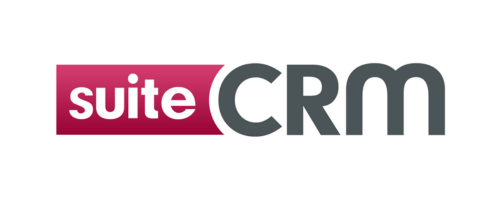
The platform is an open-source solution focusing on small and middle-sized companies.
SuiteCRM includes the sales, marketing, and support automation options and offers the simple collaborations among the different departments. One of the great add-ons is “Advanced OpenWorkflow” that allows performing the various tasks (from automating security management to setting up contract reminders).
The platform’s pricing options include:
- SuiteCRM On-Site is free
- SuiteCRM On-Demand includes a single fee $10/user/month for all editions:
- SuiteCRM Sales (enables your business to focus primarily on sales)
- SuiteCRM Service (delivers world-class customer service)
- SuiteCRM Max (for businesses that want everything)
Pros
- It's more of a platform than an app
- Ability to host the entire system in the cloud
- Modern user interface
- Number of possible integrations
- Customer support and many additional resources, guides, APIs and more
Cons
- Difficulties synchronizing the calendar
- The built-in email client has an underdeveloped interface
- When integrating with third-party software, there may be problems with the interface
SugarCRM
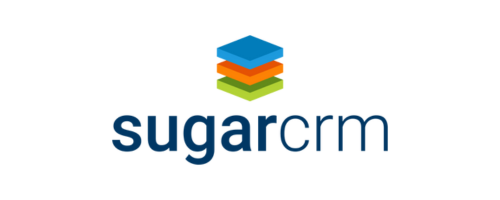
SugarCRM is positioned as one of the top CRM systems. The platform offers you a wide range of features starting from the project and activity management to integration with 104 apps. The solution automates your core sales, marketing, and customer support processes.
The software provides its clients with three on-demand plans:
- Sugar Professional costs $40 user/month and offers sales and support automation, lead management, reporting and unlimited customization.
- Sugar Enterprise comes with $65 user/month and has opportunity management, forecasting abilities, phone support and activity streams.
- Sugar Ultimate provides with an assigned technical account manager, private cloud and round the clock support for $150 user/month.
The CRM system has an obligatory annual subscription, so you cannot pay month-to-month, as in some other platforms in our CRM cost comparison.
Pros
- Open source
- Modularity
- Multilingual
- Customizable desktop
Cons
- Limited open source version available
- Additional features require additional payment
Vtiger
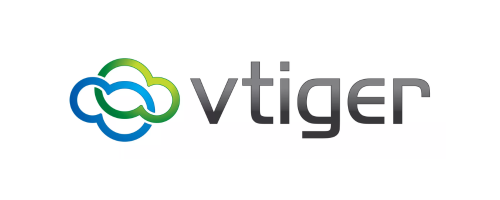
The CRM is a perfect fit for small to mid-sized businesses.
Vtiger CRM provides its users with the following versions: on-demand and on-premise. For those who consider using Vtiger, the price starts from $10/user/month and has such editions as:
- Sales Starter – $10/month/user – contact, document and workflow management + advanced reporting + web-to-lead forms + quote builder + 24h support.
- Sales Professional – $20/user/month – all Sales Starter features + multiple currencies + sales forecasting + autoresponder campaigns + 24h support.
- Free (up to 10 users)
- Help Desk Starter – $10/month/user – case 7 contact management + web and email to ticket + document management & reporting + 24h support.
- Help Desk Professional – $20/month/user – all features from Help Desk Starter + 24h support insights + custom modules and records.
Pros
- Flexibility
- Expandability
- Functionality
- Instant access to customer information
Cons
- Of course there is a mobile version, but it is not as convenient as full screen
- More suitable for small or medium businesses
[Related Article: The Best Marketing Automation Software & Platform]
monday sales CRM
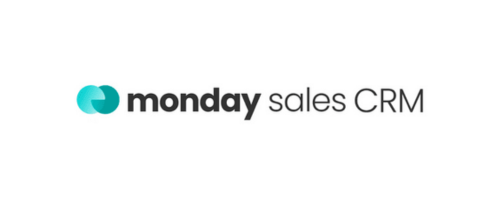
monday sales CRM is an adaptable CRM solution that revolutionizes how you handle business data and operations. This dynamic tool consolidates your sales pipeline, contact information, client communication, team collaboration, and project management into one centralized platform.
Tailored for businesses aiming to automate tasks and boost productivity, monday sales CRM offers robust features like lead management, email synchronization, tracking, and sales forecasting within its comprehensive CRM suite.
Embark on a 14-day trial to experience the platform's capabilities before exploring the CRM system price:
- Free. This complimentary plan, supporting two seats, provides essential features like webform connection and up to 200 free items for managing contacts and projects.
- Basic Plan (€10/user/month). Priced affordably, the Basic plan offers unlimited pipelines and customization options, simplifying contact management for your business.
- Standard Plan (€14/user/month). Improve your CRM experience with the Standard plan, encompassing automation, activity tracking, and invoice management features.
- Pro Plan (€24/user/month). Try advanced capabilities with the Pro plan, delivering features such as forecasting, sales analytics, email tracking, and customizable automation workflows.
- Enterprise Plan. Tailored for enterprise-level functionality, this plan offers advanced reporting, analytics, automation, custom user permissions, and diverse integration options.
Pros
- Unlimited sales pipelines empower your business scalability.
- Many customization options cater to your specific needs.
Cons
- Mass email functionality is absent in cheaper plans.
- The absence of lead scoring.
- A more pronounced focus on sales than marketing.
Nutshell
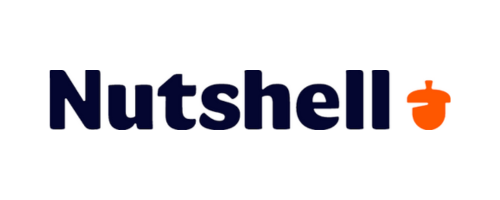
Nutshell CRM stands out with its impressive sales and marketing automation features, positioning itself as a reliable choice for businesses seeking to enhance their lead conversion rates. With customizable reports, email templates, and seamless webform connections, Nutshell CRM is a valuable investment, offering robust contact and pipeline management features.
Dive into Nutshell with a 14-day free trial, and post-trial, choose the plan that suits your business needs:
- Foundation ($16/user/month). It covers all fundamental CRM features, including contact management, email synchronization, pipeline tracking, and comprehensive business reporting.
- Pro ($42/user/month). Consider the Nutshell Pro plan at $42/user/month for more advanced functionality. This plan empowers you to create intricate automation flows and email sequences, conduct in-app calls, and generate in-depth reports.
- Power AI ($52/user/month). This plan offers the power of Artificial Intelligence to improve efficiency, effectiveness, and revenue in your CRM.
- Enterprise ($67/user/month). It is without limits and gives your team the most opportunities without costing a fortune.
Pros
- Simplify communication with ready-made templates.
- Enhance data accuracy through seamless webform integration.
- Nurture leads with easy-to-create automated sequences.
Cons
- New users may need time to grasp the range of features.
- Relies on stable internet connectivity as a cloud-based solution.
Freshsales

Freshsales CRM is a comprehensive solution, empowering your sales team to seamlessly trace leads from initial contact to purchase. With a user-friendly and reliable interface, this system streamlines operations, fortifies customer relationships, boosts close rates, and motivates staff performance.
Freshsales offers the following pricing plans:
- Free plan is up to 3 users. It helps your sales teams get organized and engage leads fast with built-in chat, email, and phone.
- Growth ($15/user/month). Try excellent CRM automation to help you avoid repetitive work and spend more time selling.
- Pro ($39/user/month). Everything you need to manage multiple sales teams like Multiple Sales Pipelines, Time-based Workflows, Auto-assignment Rules for Contacts, Accounts, Deals, Sales Teams & Territory Management, AI-powered Deal Insights & Next Best Action.
- Enterprise ($69/user/month). Experience more advanced customization, governance, and controls.
Pros
- Achieve freedom and efficiency by automating mundane tasks, such as logging phone calls, providing your team with more time for strategic activities.
- With its intuitive design, the software is easy to learn and quick to master, reducing onboarding time for your team.
- Explore the capabilities of Freshsales risk-free with the availability of a free trial.
Cons
- In comparison to CRM giants like Zoho and Salesforce, Freshsales offers fewer integrations with third-party systems.
Zendesk
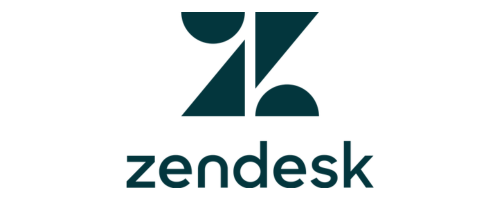
Zendesk is a robust CRM software that empowers businesses to enhance their customer interactions. The platform offers a range of features including customer support, live chat, and messaging. These capabilities enable organizations to efficiently manage and organize customer data, ensuring a seamless customer experience.
Zendesk recognizes the diversity in organizational needs and sizes, offering various CRM software pricing plans. Businesses can choose plans that align with their requirements and desired features.
- Suite Team - $55 per agent/month, $3 300/year for 5 agents
- Suite Growth - $89 per agent/month, $5 340/year for 5 agents
- Suite Professional - $115 per agent/month, $6 900/year for 5 agents
- Suite Enterprise - Talk to the vendor for a comprehensive solution that meets all your needs.
Pros
- The platform enables organized and efficient processing of customer data, contributing to a seamless customer experience.
- Zendesk provides specialized solutions tailored to unique business needs, empowering organizations to streamline customer interactions.
- By facilitating streamlined customer interactions, Zendesk serves as a powerful tool for driving business growth and establishing a foundation for sustained success.
Cons
- Zendesk may have fewer integrations with third-party systems compared to some other CRM solutions.
- Users may experience a learning curve when initially navigating the platform, requiring some time for effective mastery.
Capsule
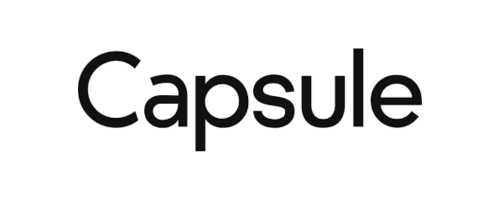
Capsule CRM is a cloud-based customer relationship management (CRM) platform designed to help businesses manage and organize their contacts, leads, and sales pipelines. It offers a user-friendly interface and is known for its simplicity, making it suitable for small to medium-sized businesses looking for an efficient way to track and nurture customer relationships.
Capsule provides five pricing plans:
- Free. This plan includes basic features for up to 2 users and 250 contacts.
- Starter (£14/user/month). Organize contacts, leads, and conversations with basic starter tools.
- Growth (£27/user/month). Make use of customization, workflows, and detailed reports for your business.
- Advanced (£42/user/month). Drive growth with advanced flexibility at your fingertips.
- Ultimate (£60/user/month). This paid plan offers premium onboarding and dedicated account management.
Pros
- Intuitive and user-friendly design, making it easy for users to navigate and quickly adapt to the system.
- Contact management that allows users to organize and track interactions with contacts, customers, and leads effectively.
- A visual representation of the sales pipeline to manage and monitor the progress of deals from initial contact to closure.
- An attractive option for small businesses with budget constraints seeking a powerful yet affordable CRM solution.
Cons
- It may lack some advanced features that larger businesses or those with more complex CRM needs might require.
- The level of customization may be limited compared to more robust CRM platforms.
Close CRM
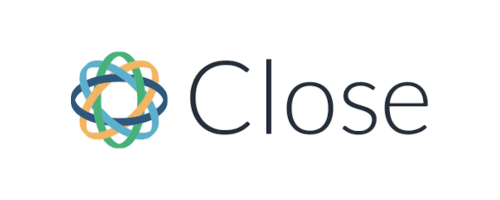
Close CRM, often referred to as Close.io, is a sales-focused customer relationship management (CRM) platform designed to streamline communication and enhance sales processes. It provides features for managing leads, tracking communication, and optimizing sales workflows, making it popular among sales teams and small to medium-sized businesses.
You can choose the most suitable option of these paid plans:
- Startup - $49 per month for 1 user, billed annually. Add users for $49/month each, billed annually.
- Professional - $299 per month for 3 users, billed annually. Add users for $99/month each, billed annually.
- Enterprise - $699 per month for 5 users, billed annually. Add users for $139/month each, billed annually.
Pros
- Efficient sales communication by combining email, calling, and messaging within the platform.
- Visual and customizable sales pipeline, allowing users to track deals through various stages and gain insights into the sales process.
- Smart Views for organizing leads and opportunities, and robust reporting tools for analyzing sales performance.
- Email automation features enable users to automate follow-ups, track email interactions, and engage leads more effectively.
Cons
- While strong in sales functionality, Close CRM may lack some advanced marketing features.
- Larger enterprises with complex needs might find Close CRM less scalable compared to enterprise-focused CRM solutions.
Agile CRM
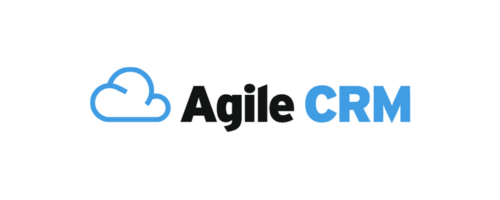
Agile CRM is an all-in-one customer relationship management (CRM) platform designed to provide comprehensive solutions for sales, marketing, and customer service. It combines features such as contact management, automation, analytics, and telephony to help businesses streamline their processes and enhance customer relationships.
Agile CRM software pricing offers the following plans:
- Free. This plan includes more than basic features for 10 users.
- Starter - $9.99 per user per month, billed annually.
- Regular - $39.99 per user per month, billed annually.
- Enterprise - $64.99 per user per month, billed annually.
Pros
- A broad range of features, including sales automation, marketing automation, customer service, and telephony consolidate multiple aspects of business management into one platform.
- Robust marketing automation features.
- With features like deal tracking, task automation, and real-time analytics, Agile CRM helps sales teams streamline processes and manage their pipelines efficiently.
- The built-in telephony system allows users to make calls directly from the CRM platform.
Cons
- Some users have reported that Agile CRM may have a steeper learning curve.
- Businesses with highly unique or complex workflows may find the customization process somewhat challenging.
- While functional, the user interface design might not be as intuitive or modern as some competing CRM solutions.
Apptivo
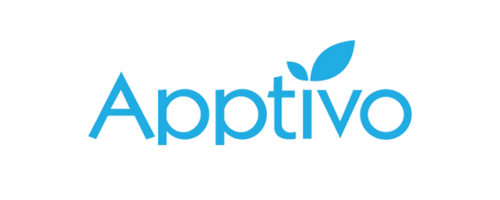
Apptivo is a cloud-based business management suite that encompasses various applications, including customer relationship management (CRM), project management, invoicing, and more. It aims to provide an integrated solution for small and medium-sized businesses to manage their processes efficiently.
This affordable CRM option provides the following pricing:
- Lite ($8/user/month). It is created for small sales teams to manage deals and send quotes.
- Premium ($12/user/month). This plan is for fast-growing teams that need an all-in-one CRM.
- Ultimate ($20/user/month). It is suitable for large teams that need automation and integrations.
- Enterprise (contact the vendor for pricing details). Enterprise plan is for major businesses that require complex integrations.
Pros
- A comprehensive suite of applications, covering CRM, project management, financials, procurement, and more.
- Apptivo is often considered cost-effective, making it an attractive option for smaller businesses or those on a budget.
- The platform provides a good level of customization.
- Responsive customer support provides assistance through various channels to help users navigate the platform effectively.
Cons
- In some areas, the depth of features may not match the capabilities of specialized tools focused solely on CRM, project management, or other specific functions.
- Users looking for more advanced analytics and reporting capabilities may find the options somewhat limited.
Maximizer
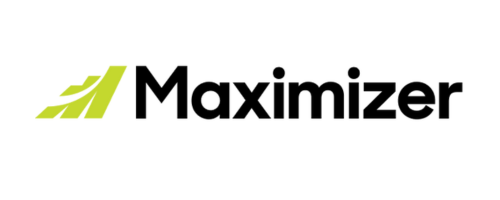
Maximizer is a customer relationship management (CRM) software designed to help businesses manage their contacts, leads, and customer interactions. It offers features for sales automation, marketing, and customer service, aiming to improve overall efficiency in building and maintaining customer relationships.
Maximizer includes only two pricing options:
- Base Edition (€58/user/month). This plan offers powerful and affordable CRM for sales teams to maximize efficiency, and drive revenue growth.
- Sales Leader Edition (€63/user/month). Everything included in the previous edition plus tools to enable the sales leader to monitor their team.
Pros
- Integrations with various third-party applications and tools, enhancing its compatibility with existing workflows and expanding its functionality.
- User-friendly interface for users with varying levels of technical expertise.
- Customization options to adapt to specific business processes and workflows, providing flexibility for different industries and needs.
Cons
- While Maximizer offers mobile apps for iOS and Android, some users have reported limitations in terms of functionality and user experience compared to the desktop version.
- The reporting features may be considered somewhat complex.
Some of these programs is perfect for charitable organizations. By the way, small nonprofits can benefit from using a CRM system in a variety of ways. Here are some examples of who could benefit from a CRM for small nonprofits:
- Fundraising staff: For small nonprofits, fundraising is critical to keep the organization running. A CRM system can help fundraising staff manage donor information, track donations, and identify potential major donors.
- Volunteer coordinators: Volunteers are essential for many small nonprofits, and a CRM system can help volunteer coordinators manage volunteer data, track volunteer hours, and communicate with volunteers effectively.
- Event planners: Small nonprofits often organize events such as charity walks, auctions, and galas to raise funds. A CRM system can help event planners manage attendee information, track registration, and communicate with attendees.
- Grant writers: Small nonprofits often rely on grant funding to support their programs. A CRM system can help grant writers manage grant deadlines, track grant applications, and communicate with grantors.
So CRM for small nonprofits can help streamline operations, improve efficiency, and enhance communication with donors, volunteers, and other stakeholders.






